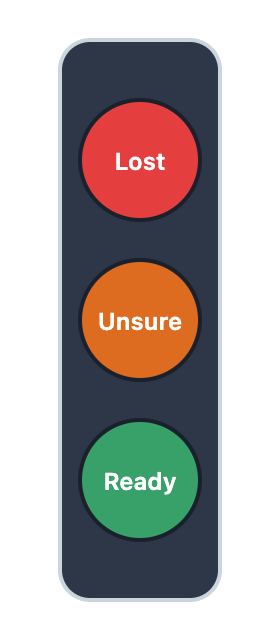Welcome to Supporting Mentees Through Consistent and Empathetic Communication.
Mentoring a new software engineer isn’t just about answering questions or sharing technical knowledge — it’s about being their steady guide as they navigate a brand-new environment. As a mentor, you set the tone for how your mentee experiences their first days, weeks, and months on the team. Your empathy, your communication, and your willingness to meet them where they are all shape how quickly and confidently they grow.
When you’re mentoring someone new, everything can feel unfamiliar, from the codebase to the team culture. In this course, you’ll learn how to:
- Build trust and rapport from day one through clear, empathetic communication.
- Guide your mentee’s growth by meeting them where they are and adapting your support to their needs.
- Provide constructive feedback that encourages learning and builds confidence.
- Model leadership by demonstrating patience, openness, and a commitment to continuous improvement.
You’ll see practical examples and get hands-on practice to help you support your mentee with confidence, no matter how new or uncertain they feel.
Being a mentor means remembering what it felt like to be new yourself. Think back to your first days in tech: the flood of new information, the unfamiliar tools, the pressure to keep up. Empathy is about acknowledging those challenges and making it safe for your mentee to ask for help.
Consider the table below of some example phrases to show more empathy in your communication with mentees:
Every mentee is different. Some are hands-on learners, some prefer to read, and some need to talk things through. Active listening helps you understand where your mentee is coming from and how you can best support them.
Ask open-ended questions like, "What programming languages are you most comfortable with?" or "How do you like to learn new things — by reading, watching, or doing?" Listen carefully, reflect back what you hear, and avoid making assumptions. This builds trust and helps you provide the right level of support.
Here’s how this might sound in a real conversation:
- Milo: Hi Natalie, welcome to the team! I remember my first week here was a bit overwhelming, so please feel free to ask me anything, even if it seems small.
- Natalie: Thanks, Milo. I appreciate that. Honestly, I’m still getting used to the codebase and all the new tools.
- Milo: That’s totally normal. When I started, I felt the same way. Can I ask, what programming languages are you most comfortable with? Maybe we can start there.
- Natalie: I’m pretty comfortable with Python, but I haven’t worked much with cloud platforms before.
- Milo: Great, that gives us a good starting point. We use Python in a few of our services, so I’ll show you those first. And don’t worry about the cloud stuff — we’ll take it step by step.
Milo normalizes Natalie’s feelings, listens to her background, and tailors his support to her experience — making the onboarding process less intimidating.
One of your most important jobs as a mentor is to make complex technical concepts approachable. Break down jargon, use analogies, and check in often to make sure your mentee is following.
A helpful tool for this is the stoplight method:
- Red: “I’m completely lost.”
- Yellow: “I’m following, but I have some questions.”
- Green: “I’m good to go!”

You can invite your mentee to use these colors to quickly communicate how they’re feeling about a topic. For example, you might say, “As we go through this, just let me know if you’re feeling red, yellow, or green. That way I can slow down, explain more, or move ahead based on what you need.” This makes it easier for your mentee to speak up if they’re confused, and helps you adjust your explanations in real time.
For instance, instead of saying, "Our system uses a microservices architecture with distributed cloud components," you might say, "Think of our system as a group of small apps that each do one job, and they all talk to each other over the internet." Always encourage your mentee to ask for clarification and remind them that it’s okay not to know everything right away.
This approach builds your mentee’s confidence and sets the stage for open, ongoing communication.
Next up, you’ll get to practice these skills in a realistic tasks, where you’ll welcome a new mentee, practice active listening, and explain technical concepts in a way that’s clear and supportive.
